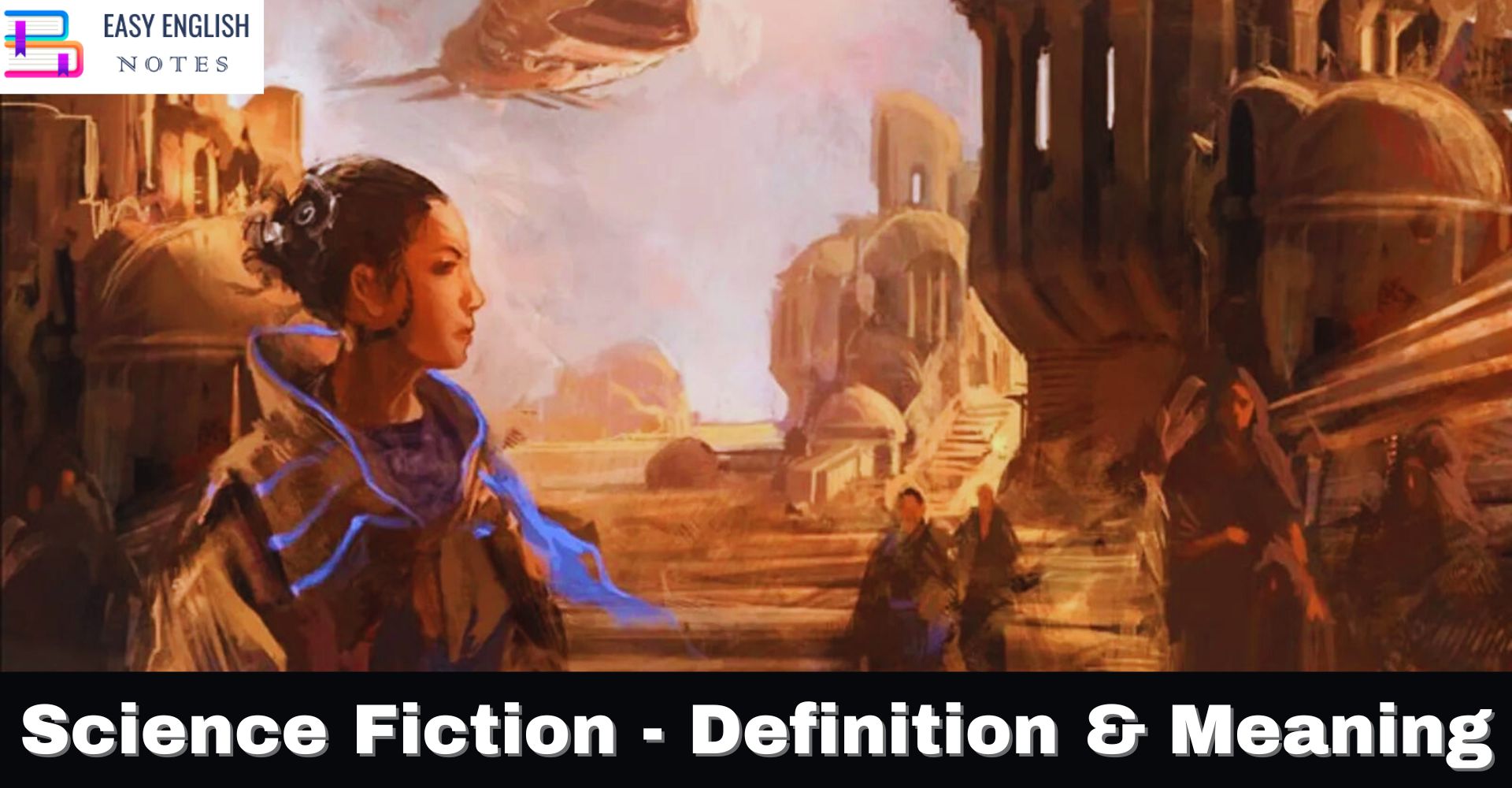Science Fiction is a literary genre of speculative fiction that naturally deals with imaginative and futuristic concepts such as advanced science and technology, space exploration, time travel. Parallel universe and extra- terrestrial life. It is also called literature of ideas and often explores the main consequences of scientific, social and technological innovations and discoveries such as spaceships, time machines and robots. Science fiction stories are often in a world that is very different and strange from the real and authentic world. Science fiction literature, film, television and other media have become popular and influential over much of the world. Besides providing entertainment, it can also criticize present-day society, and is often said to inspire a sense of wonder.
The plot of Science Fiction creates situations different from those of both the present day and the known past. Science Fiction texts also include a human element, explaining what effect new discoveries, happenings and scientific developments will have on us in the future. Early pioneers of the genre of science fiction are H. G. Wells (The War of the Worlds) and Jules Verne (20,000 Leagues Under the Sea).
Characteristics of Science Fiction :
Science fiction is often based on scientific principles and technology.
Science fiction may make predictions about life in the future.
Science fiction often deals with aliens or with life on other worlds.
Science fiction can comment on important issues in society Education.
Some well-known 20th century science fiction texts include 1984 by George Orwell, Brave New World by Aldous Huxley, and The Fountain Head by Ayn Rand. In addition, the four most-popular and well-recognized century authors are Isaac Asimov, author of The Foundation trilogy and his robot series, Arthur C. Clarke famous for 2001, a Space Odyssey: Ray Bradbury, known for his Martian Chronicles, and Robert Heinlein, author of Stranger in a Strange Land and The Moon Is a Harsh Mistress.
Also Read :
- Compare Hamlet with Macbeth, Othello and other Tragedies
- “The Pardoner’s Tale” is the finest tale of Chaucer
- Prologue to Canterbury Tales – (Short Ques & Ans)
- Confessional Poetry – Definition & meaning
The writers of Science Fiction use significantly more biological terms in their writing than do writers of mystery and science fiction, which is consistent with our predictions, but they also use more words in the biological category than mystery writers, which is inconsistent with our predictions. In this case, science fiction is no different from mystery. Though fantasy has significantly more religious terms than any other genre, science fiction uses more religious terms than mystery. Science fiction authors might have a higher rate of religion terms in their work than mystery authors because they are more concerned to discuss religious subject matter than are mystery authors. This is contrary to our hypothesis, which conflated the religiosity of the genres with the genre’s concern to discuss issues of religion. For example, Greg Egan’s “Oceanic” is clearly concerned with religion, albeit from sceptical point of view.
In terms of literary style, science fiction and fantasy both use lower rates of pronouns than does mystery, as hypothesized. Science fiction writers use a lower rate of auxiliary verbs than mystery writers, but a significantly higher rate than fantasy.
Lastly, we can say that Science fiction Stories are more interesting than other stories because of the mixture of both the known and the unknown. World which seems to be real world in the perspective of Science fiction from the writers’ point of view.
PLEASE HELP ME TO REACH 1000 SUBSCRIBER ON MY COOKING YT CHANNEL (CLICK HERE)











